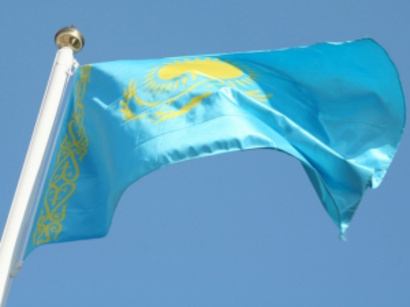Kazakhstan intends to reform hydrocarbon export strategy, expert says

By Aynur Karimova
Kazakhstan's government and business circles intend to radically change the country’s export strategy for hydrocarbons, political analyst Murat Abulgazin believes.
"If earlier we all were focused on Europe, the Baltic and the Black Sea, currently, the flows are reoriented to the east," the expert noted, commenting on a statement recently made by Kairgeldy Kabyldin, the head of Kazakhstan's KazTransOil state oil transportation company, about the government's interest in the transportation of Kazakh hydrocarbons and the transit of Russian oil and gas to India.
Abulgazin believes that the issue of safety in countries located south of Kazakhstan, which are often seen as the main obstacle in the implementation of transport and energy projects in the region, can be resolved through political means and the economic interests of states, local communities, and groups.
He noted that gas exports to South Asia could be carried out not only through Afghanistan, but also through China to Pakistan and then to India, or even direct to India.
"Such South Asian links are also considered by China, Russia, Pakistan and Iran," he added.
According to the expert, the statement by the KazTransOil head was made in a timely manner and is quite reasonable given recent events in the world economy and politics.
"The situation in the world market of hydrocarbons requires new and extraordinary steps to maintain the domestic oil and gas industry, which is the major segment of the Kazakh economy. But it is more important to take such steps that will create conditions for the prospects of its development, what just may be the opening of a new direction of hydrocarbon exports to India," he said.
Abulgazin also noted that such plans could involve primarily Kazakhstan as a transit route for Russian companies that have more export opportunities and long-standing plans to enter South Asia through the Altai and Central Asia, including through the existing infrastructure.
He believes that the question of the export of hydrocarbon resources to South Asia will be resolved after Kazakhstan extracts additional volumes of raw materials.
Kazakhstan is interested in increasing the flow of its gas exports south. It is believed that this direction will give the country an opportunity to reach the Indian Ocean.
Kazakhstan, one of the five Central Asian countries, is rich with hydrocarbon reserves. The country saw an increase in oil and natural gas production in January-July 2015, as reported by the country's Statistics Committee under the National Economy Ministry.
The production of oil, including gas condensate, increased by 0.7 percent to reach 47 million tons in the reported period.
Kazakhstan produced 80.845 million tons of oil in 2014, including gas condensate, which is 1.2 percent less than in 2013.
Earlier OPEC reported that it predicts a decrease in Kazakhstan’s oil supply of about 10,000 barrels per day, putting the country's average at about 1.62 million bpd in 2015.
“On a quarterly basis in 2015, output will average 1.66 million bpd, 1.60 million bpd, 1.59 million bpd, and 1.62 million bpd, respectively,” the report said.
Average oil production in Kazakhstan in the first half of 2015 was 1.63 million bpd, indicating a growth of 20,000 bpd over the same period in 2014, OPEC noted.
Energy-rich Kazakhstan produces oil mainly from its largest
fields -- Karachaganak and Tengiz.
The Karachaganak field's oil and gas reserves amount to 1.2 billion
tons, while its natural gas reserves are estimated at 1.35 trillion
cubic meters.
About 49 percent of Kazakhstan's gas production and 18 percent
of its produced oil are extracted from this field.
The Tengiz field in the west of the country is also one of the
deepest and largest oil fields in the world. Total estimated
reserves amount to three billion tons (26 billion barrels).
Another large oil and gas field -- Kashagan -- is located in the
north of the Caspian Sea. Oil production at Kashagan started in
September 2013, but its operation was suspended when a gas leak
appeared along its pipeline.
--
Aynur Karimova is AzerNews’ staff journalist, follow her on Twitter: @Aynur_Karimova
Follow us on Twitter @AzerNewsAz
